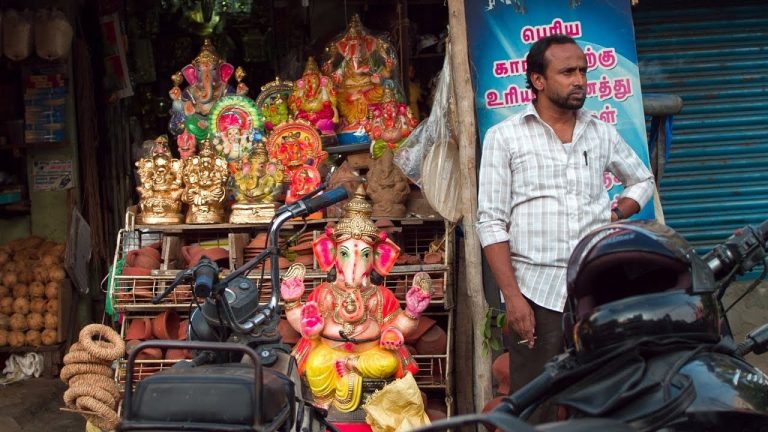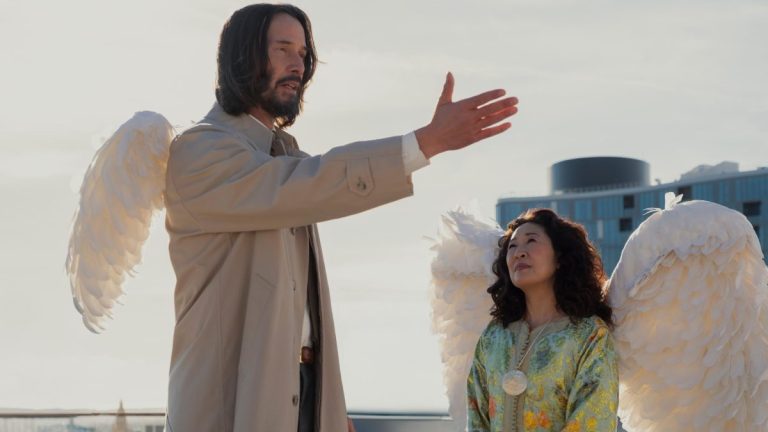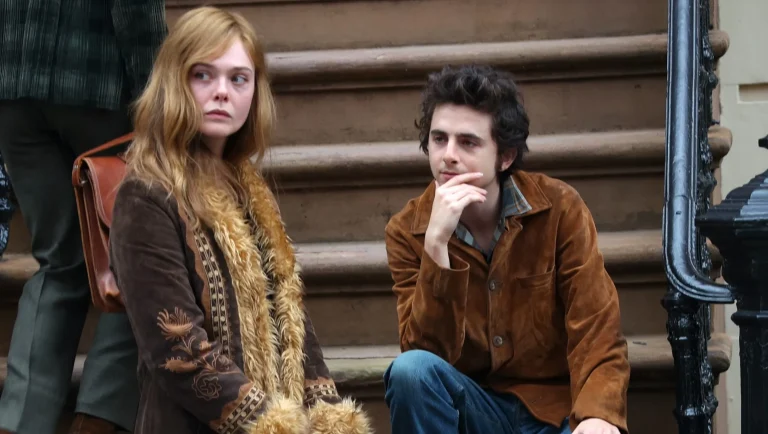Philippe Falardeau’s “Lovely Day” often feels like an antithesis of its title, and that’s a compliment for this anxiety-laden dramedy that revolves around the day of a wedding. It follows Alain (Neil Elias), a Québec resident, as he recounts all the things that led him to this point in his life. He scrutinizes nearly every bit of his past that turned him into the man he is.
As a premise, that isn’t particularly new or inventive. Even recently, Christopher Storer followed a similar narrative in a wedding-based episode of his FX series, “The Bear.” It was also about a dysfunctional family trying to mend their relationships on this special occasion. Yet, Falardeau’s film stands out through its wit, charm, and an empathetic approach that is hard not to fall in love with.
Although a wedding story, “Lovely Day” is more about the groom-to-be, Alain, tracing his emotional state back to the crucial moments from his past. It shows him recounting parts of his early childhood, late teens, and the immediate past, and it’s all in service to analyzing his psyche. Falardeau presents him as a young man who is eternally flustered and quite inward, if not a conventional introvert. He struggles to express himself even with people who have been by his side for several years.
It puts him in a bind on what may be the most important day of his life. He remains in panic throughout, but it doesn’t seem like the last-minute jitters that couples usually face before their wedding. Instead, it feels like the result of a deep-seated resentment or self-loathing that doesn’t manifest in a typical way.
Falardeau’s and Alain Farah’s script (based on Farah’s autobiographical fictional book) underlines its roots as it dissects his peculiar behavior and years of anxiety. It briefly shows episodes where he felt hurt, insulted, ignored, or abandoned by those he was supposed to trust or love. That’s why the film’s original, French title, borrowing from Farah’s namesake novel, seems apt, even if a tad more revealing.
“Lovely Day” is primarily about how buried secrets can lead to all sorts of dangers. It analyzes Alain’s trauma, which is either undiagnosed or not lucidly discussed. In such cases, trauma can sneak up on you, oftentimes, when you least expect it. Falardeau depicts its similarly debilitating nature through a sharply observed and deeply felt character study of this man, who remains the core focus of his narrative. Much of what we see, whether the crises or the characters, is filtered through his mind, and this subjective lens makes the film all the more affecting.

The film also includes his experiences as the son of Lebanese-Egyptian immigrant parents, who divorced when he was barely a teenager. It offers relevant cultural insights with due reverence, weaving them into the film’s character-driven tale. Whether the separation of his parents from each other or from their homeland, it reflects their unique points of view without compromising on humor or heart. Even in its wittier moments, it doesn’t look down upon any culture, nor does it use any character as a sole representative of a nation or a diaspora. That allows a window into a diverse set of perspectives that have surrounded Alain since his birth.
Considering the film’s subjective lens, André Turpin dramatizes certain aspects of Alain’s life through his cinematography. Still, he strikes a fine balance between its occasional heightened moments and the grounded ones, as it tracks a writer living a modest life. While a tense affair about his emotional struggles, the film is rather breezy and quietly affecting when it shows the protagonist facing everyday problems, be it a delayed order or a malfunctioning AC. That’s why it can resonate with anyone who has felt stuck in a rut at some point in their lives.
Overall, the film offers a lived-in experience of Alain’s reality, along with fuller portraits of the supporting characters, including his parents, Elias (Georges Khabbaz) and Yolande (Hiam Abou Chedid), and his long-time friend, Eduord (Hassan Mahbouba). It also helps that the performances stay on the expected meter in its dramatic and comedic moments.
Rose-Marie Perreault is also captivating as the bride-to-be, Virginie, but the script doesn’t develop her beyond what she represents in Alain’s life. Her character appears almost plainly as a supportive figure for the trauma-ridden protagonist. We don’t get to see enough of her character beyond her relationship with him, which is rather unfortunate considering the acting range she showcases with what she gets to work with. It feels like a missed opportunity for a film that is so assured and sincere in its tone, backed by a script that is subtly interconnected otherwise.





![By Night’s End [2022] Review – A timid and often silly home-invasion movie bodged down by lack of tension](https://79468c92.delivery.rocketcdn.me/wp-content/uploads/2022/07/By-Nights-End-Movie-Review-1-768x326.jpg)


![First Man [2018] Review: An Exhilarting Experience](https://79468c92.delivery.rocketcdn.me/wp-content/uploads/2018/10/firstman_03-768x384.jpg)